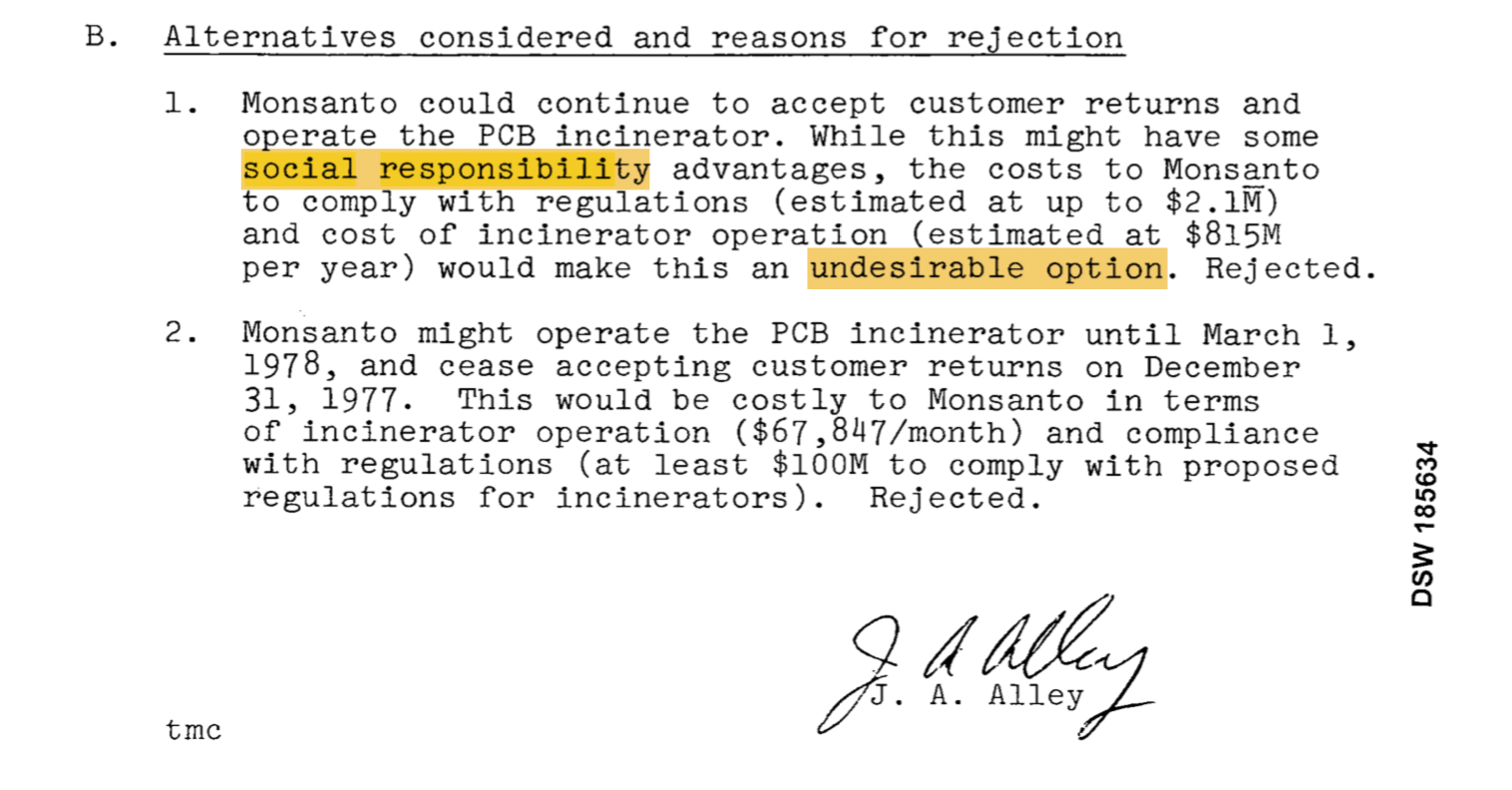Social Responsibility: An "Undesirable Option" for Monsanto

Monsanto halted their production of PCBs in 1977, however, the issue of PCB waste remained a persistent problem. The document highlighted below is an internal record of recommendations posed to Monsanto following the EPA’s impending regulation that would tighten restrictions on PCB waste management. The recommendation is as stated: “It is recommended that all customer users of the Monsanto incinerator be informed immediately via letter (see attached) that we will cease accepting PCB returns effective August 31, 1977. Further, it is recommended Monsanto advise the EPA of our decision.”
In the letter attached, Monsanto discloses that they have significant amounts of PCB waste that need to be incinerated before their incinerator is shut down. Rather than offer to accept all PCB waste from users of the PCB incinerator, they inform the users: “Monsanto will stop accepting PCB waste returns effective August 31, 1977…It is your responsibility to determine the adequacy of the facility and its compliance with regulations.”
In the section of the document devoted to “Alternatives considered and reasons for rejection,” one rejected recommendation is: “Monsanto could continue to accept customer returns and operate the PCB incinerator,” however, “While this might have some social responsibility advantages, the costs to Monsanto to comply with regulations (estimated at up to $2.1M) and cost of incinerator operation (estimated at $815M per year) would make this an undesirable option.”

This example of avoiding responsibility for the safe disposal of PCB waste underscores Monsanto’s pattern of evading accountability for environmental damage.
Check out the document here!
